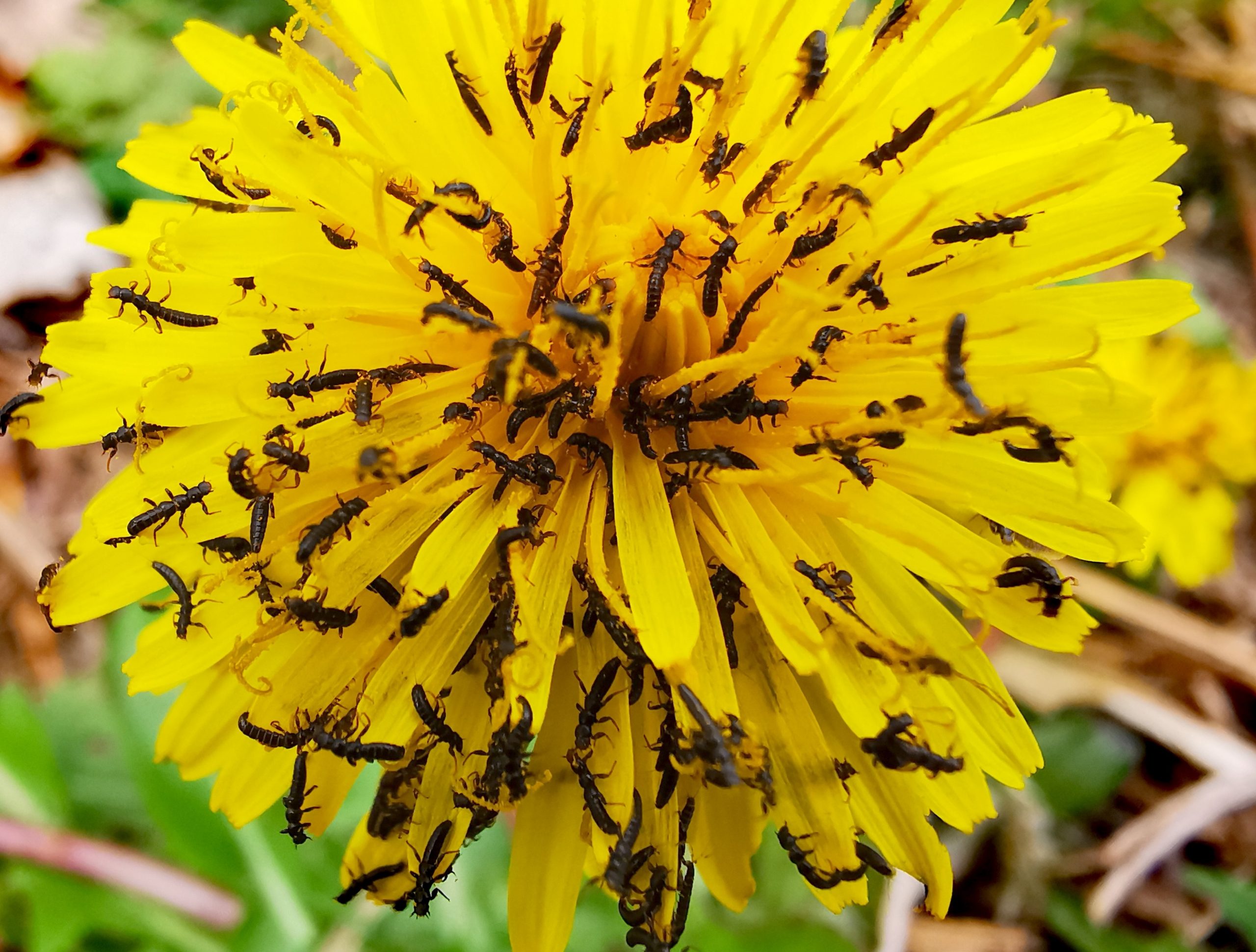
One of our conservation wardens here at Dartington Trust, Vicky Churchill is a big fan of these tiny three-clawed larvae and their adult version, the beautiful oil beetle. Here she writes about the fragility of their life cycle which we humans can so easily disrupt.
At one time, if you walked along the river footpath at Dartington in early spring, you would see clusters of tiny larvae gathered on the heads of the yellow dandelions or the lesser celandine with its heart shaped leaves. The flowers grew in abundance along the banks and footpath edges of the permissive footpath along the river walk.
However, the increased popularity of the area, which many of us enjoy, has come at a price for this species. The increased in footfall has created multiple new paths as walkers navigate away from the permissive paths when they are muddy. In doing so these plants have been depleted and so the beetle has all but disappeared from the grass banks and footpath edges.
The oil beetle is particularly fascinating as it has a symbiotic relationship with the solitary bee. These lone workers have also decreased due to habitat loss along the banks and footpath edges.
The adult oil beetle emerges in early spring to reproduce where they mainly feed on the lesser celandines and dandelions. The female beetle will then mate and lay her eggs. When the eggs hatch into the larvae, known as triungulins, they then climb onto flower heads where they wait for a solitary bee to arrive to pollinate the plants.
As the bee busily gathers pollen, the triungulins climb onto the back of the bee and hitch a lift so they are taken deep into the bee nest. Once there, they disembark and feed on the stores of pollen. The larvae will then grow and pupate in the bees nest and await for the following spring where they emerge as adults. And so the cycle begins again.
Find out more about our conservation work here at Dartington – or why not take one of our short courses and explore how developing our relationship with trees can improve our wellbeing and touch our soul.
